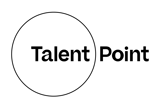I've worn many hats throughout my career, which has spanned Recruitment, Account Management and (most recently) Learning and Development. However, no matter what my role has been, I've always been troubled by one fundamental aspect of hiring. It's something which is completely foundational to the entire process, and yet it's frequently done extremely poorly.
What is it, you ask? It's the importance of establishing good interviewing skills and techniques. That simple step is so often overlooked, even by well-established hiring managers – people who have spent entire careers working within these systems – that it honestly makes me a little mad at times.
Did you notice that I haven't mentioned processes or process so far? That's deliberate. To be blunt, what I'm talking about is much more basic and far more important than any process you or your organisation can come up with. Put simply:
If you can't interview in a way that definitively tells you whether an applicant can or cannot do the job, then it doesn't matter how fancy or complicated your hiring process is – it will fail!
Whether you have a one-stage process or a ten-step system involving multiple obtuse logic problems and code tests, if the final outcome isn't a clearly defined answer to the questions "is this person capable of doing the role?" then none of it has truly mattered (and yes, I'm exaggerating a touch, but you get the point).
Luckily, I'm far from the only person that has pondered these problems. At Talent Point I found a kindred soul in our MD, Tom Fahey, who has spent the best part of his career looking to improve the hiring process. Now, more than ever, we're focused on finding strategies to stop this pandemic across the tech sector and beyond (I'd argue it happens across all industries).
Together, we've come up some very simple ideas to help make tech businesses more confident and capable at using the interview process to make a judgement call on whether someone CAN or CANNOT do the job being interviewed for.
But the best part is that these tips don't just increase the level and quality of information being gathered during hiring. They also go hand-in-hand with creating an applicant experience which makes the interviewee want to take a position within the organisation. In other words, it's a rare win-win situation – now doesn't that sound much better?
1. Do Unto Others
Firstly, it's critical – I cannot stress this enough! – that every interviewer spends time preparing for the interview!
I've never understood why we think it's okay to ask applicants to spend hours upon hours researching and preparing for interviews if the interviewer can't be bothered to spend even ten minutes prepping themselves.
I'm not talking about conducting detailed background checks on each person you interview; preparation can be as simple as re-reading the applicants CV! Though, if you have the luxury, branch out a bit. If they're a developer, find their GitHub or Bitbucket account; if they're a PO or UX engineer, check out some of their previous projects. Find their website, read their blog, view their portfolio, check out their YouTube channel. Whatever it is, just make sure you take a bit of time to understand the applicant clearly and differentiate them from anyone else you're interviewing.
2. Avoid Creating Pretty Little Liars
That extra bit of research will enable you to prepare some contextualised questions to give the applicant an opportunity to answer more specifically, increasing the value of the information you receive.
When interviewers don't prepare insightful questions they tend to resign themselves to using trusted, tired old questioning that every applicant has nightmares over. For example, how many times have you heard the question: "What's your greatest weakness?" The problem is, every single blog post, self-help book, and interview technique manual out there has the same advice: take a positive and turn it into a weakness.
The result is that asking "what's your greatest weakness?" in an interview is simply prompting the applicant to lie to their potential employer before they've even begun working for you!
We know that's what the applicant is going to do – that's what we'd do in their place after all! That means I'm pretty confident you'll already be expecting a response along the lines of "Oh, my attention to detail is my greatest weakness"... eurgh.
As an interviewer, you should ask yourself: what is the actual point of these types of question? If you want to know how they adapt under pressure, have good problem-solving skills, have good people skills, or even have attention to detail, then ask about those things.
Providing a contextualised question directly related to these skills will result in a much more useful insight than asking something that's open-ended. The "weakness" types of open-ended question force the applicant to guess at your actual intent, causing them to either panic or start lying to cover what they think you'll want them to be… neither of which give you an accurate idea of their actual abilities or personality.
3. Keep Calm & Carry On
We've talked about this before, but it remains worthwhile reiterating: an interview is a two-way street. Turning it into an interrogation is about as unproductive a process as you can create.
A distracted, stressed, worried or intimidated applicant won't give you their best answers, so it's important to make them feel at ease. It won't just provide you with clearer, more reasoned answers from someone less distracted, it'll also make them feel like your company is one they would want to work for.
That last point cannot be stressed enough, particularly within the current hiring climate. We're in the middle of a serious technical skills shortage so, if you decide to exercise your power as an interviewer, it will cause you far more damage than good.
That perfect applicant may not realise they're leaving the interview with an offer, so instead they might dwell on the negative aspects. After all, a company that treats someone poorly in an interview environment is likely to have a fairly toxic culture – and who wants to knowingly signup for that!
But even if they aren't a good fit, a positive applicant experience pays dividends, particularly in industries with niche skill requirements. Applicants do talk to each other and will share their experience, so a bad interview can become a damaged brand, costing you multiple hires over time.
4. Finish as You Mean to Start
Finally, make sure the interview process doesn't end with the handshake before they walk out the door. Make time after the interview to give constructive, detailed feedback to the applicant.
If you can, it's always best to do this over the phone or even in person, as it creates a more humanised delivery. It also presents an opportunity for the applicant to provide counterpoints. I'm not saying to let them argue, but if it was a close call and the feedback session highlights that their grandfather died the morning of the interview, that could be valuable information. You might even consider having them back for a second round or keep them in mind for future positions – or even get some tips on your own interviewing technique in return!
It's also another way of making the applicant experience positive, regardless of whether they are going to receive an offer or not, as they get an opportunity to find out how to improve their skills. Worst case scenario, you help someone out and they remember you for that; best case, they take that feedback and become someone who could be valuable to your company further down the line.
Sound Convincing?
Contextualising questions, putting applicants at ease, doing initial research, and providing feedback are just some of the ways we have helped our customers in the past. Our main philosophy around improving interviewing is to ensure that everything the interviewer does maximises the potential for the applicant to demonstrate their true value.
These four tips provide a simple foundation and some useful pointers to ensure that the responses you get are as informative as possible, whilst the experience the applicant receives highlights all the positives of working for your company. That sounds simple enough, but the reality is that very few businesses truly put these concepts into practice.
Over the last few months, we've been testing our own interview framework, including these basic principles, for a growing selection of customers. We've found that clear benefits are consistently observed by both the interviewers and the applicants who have attended those interviews.

